Immersing yourself in a frosty pint of craft beer, have you ever wondered about the technological marvels behind its creation? Well, brewing is no longer just a traditional art; it’s experiencing significant technological advancements.
This enlightening blog post will uncover the fascinating innovations from intricate milling processes to AI and IoT integration within breweries that are shaping the future of beer production.
Ready for an exciting journey through hops, yeast and digital advancement? Let’s dive right in!
Key Takeaways
- Technology has greatly influenced the brewing industry, making processes more efficient and precise. From RFID tags to GPS tracking, breweries are using advanced tools to streamline operations and stay competitive.
- Innovations in milling processes involve the use of roller mills, adjustable gap settings, improved grain handling, and integrated control systems. These advancements result in greater consistency in beer quality and production efficiency.
- Fermentation techniques have also seen advancements with the use of non – Saccharomyces yeast, temperature control methods, pressure fermentation, dry hopping techniques, improved yeast management practices, sour beer production methods,and barrel aging. These innovations enable brewers to create a diverse range of flavors and styles.
- Packaging and distribution have been revolutionized by smart packaging solutions that include interactive labels with information about the beer or brewery tours. Other innovations include temperature indicators for optimal serving temperatures, UV light protection for freshness preservation,sustainability features like recycled materials or biodegradable options,and tracking systems for real-time updates on delivery status or shelf life remaining.
The Role of Technology in the Brewing Industry
Technological advancements in the craft beer industry have revolutionized brewing processes, making them more efficient and precise.
Technological advancements in the craft beer industry
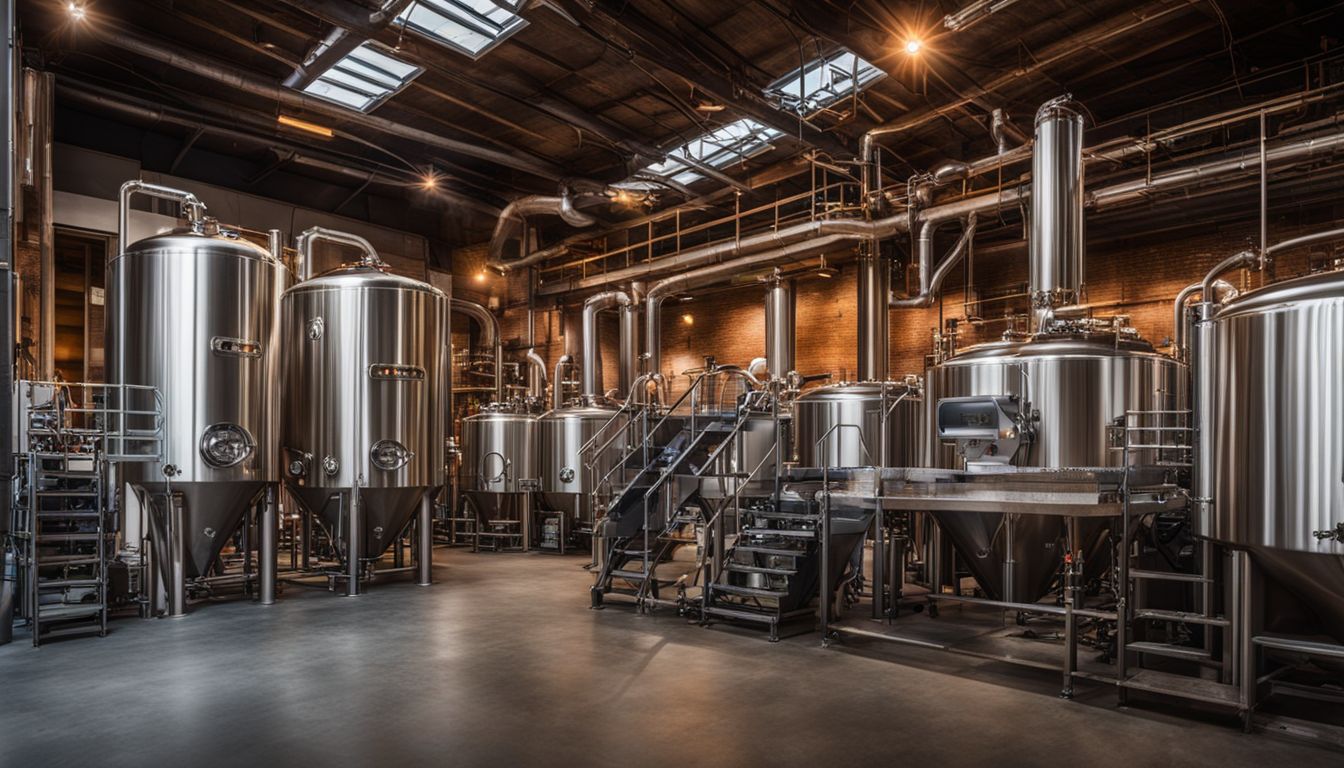
New tools are changing the craft beer world fast. Now, brewers use machines and programs to make work easier. For example, RFID tags and GPS tracking help watch over beer shipments.
These parts of a tech trend called the Internet of Things (IoT). Also, new ways of brewing come up often. The success of brewers depends on their use of these cool tools. Thus, tech plays a big role in the future shape of the beer industry.
So both small home brewers and large factories benefit from this change in brewing technology.
Importance of technology in staying competitive
Technology plays a crucial role in helping breweries stay competitive in the beer industry. With advancements like RFID tagging, GPS shipment tracking, and programmable systems, breweries can streamline their operations and improve efficiency.
This not only reduces costs but also ensures that the beer reaches consumers faster and fresher. Technology also enables brewers to experiment with new flavors and ingredients, allowing them to stand out from the competition.
By embracing technology, breweries can not only keep up with evolving consumer preferences but also gain a competitive edge in this fast-growing industry. So whether it’s automating brewing processes or incorporating AI and IoT solutions, technology is essential for breweries to thrive in today’s market.
Innovations in Brewing Processes
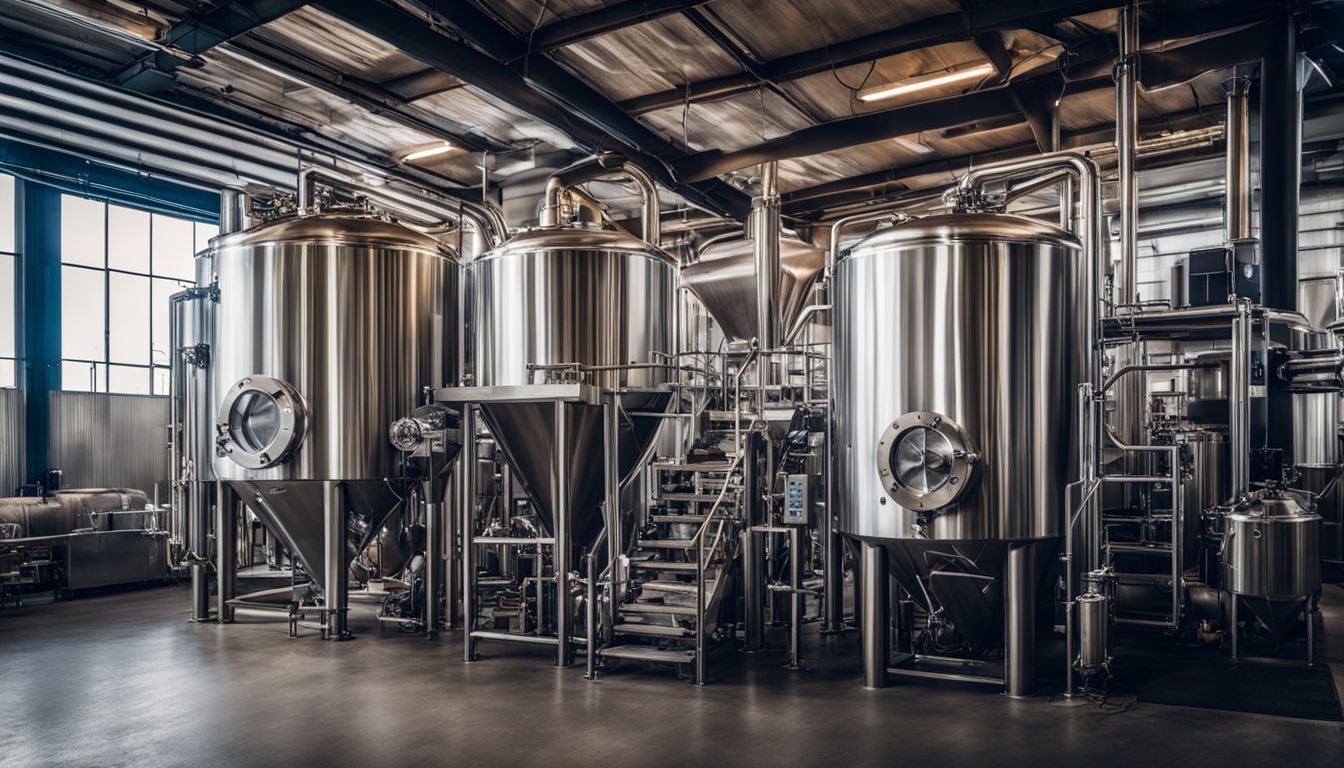
The milling process has undergone significant changes, improving efficiency and consistency in grain crushing.
Changes to the milling process
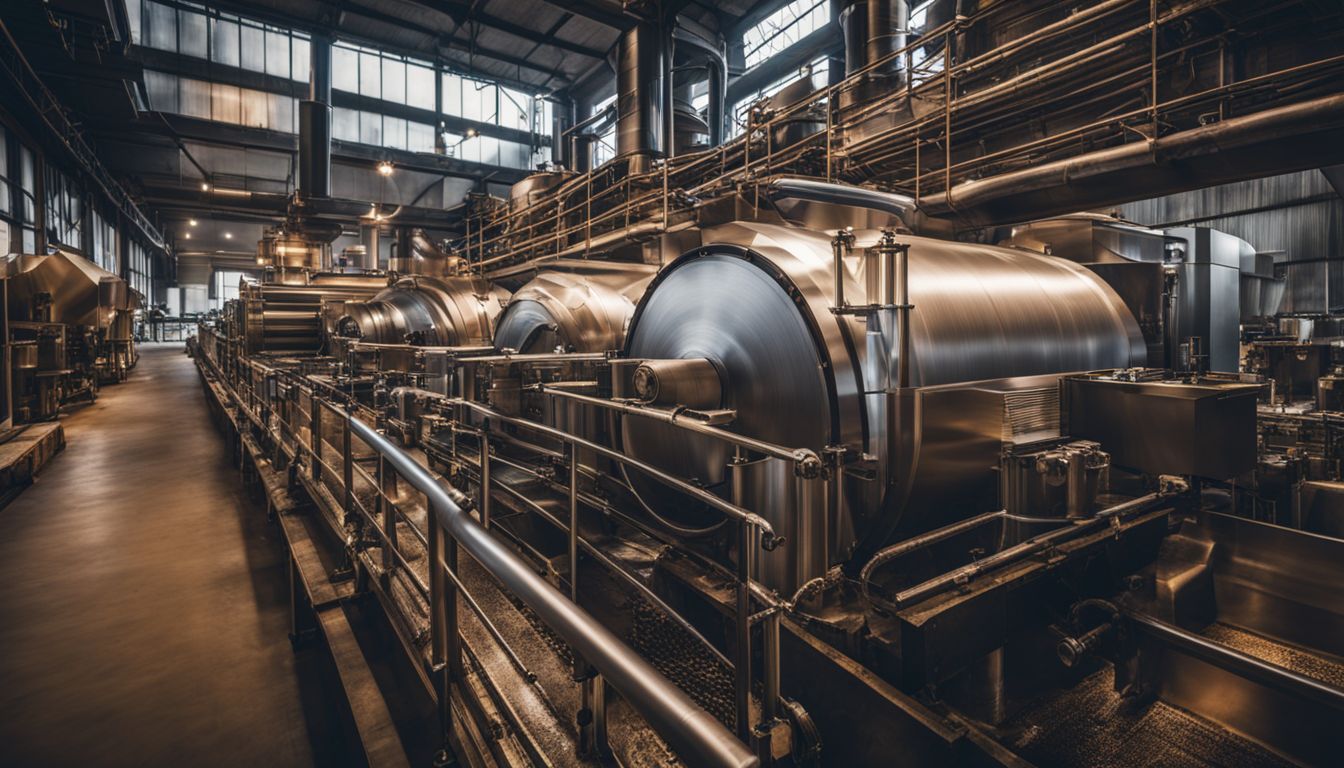
The milling process in beer brewing has undergone advancements, making it more efficient and effective. Here are some key changes:
- Use of roller mills: Roller mills have replaced traditional stone mills, allowing for more precise control over the size and consistency of the grain particles.
- Adjustable gap settings: Brewers can now easily adjust the gap between the rollers to achieve the desired level of crush for different grains, resulting in improved extract efficiency.
- Improved grain handling: Modern milling systems often include automated grain handling equipment, reducing manual labor and ensuring consistent grain flow.
- Grain conditioning: Some breweries are using steam or hot water to condition the grains before milling. This process helps soften the husks and make them easier to separate from the starchy endosperm.
- Fine grists for better extraction: Fine mashes with smaller particle sizes lead to better conversion of starches into fermentable sugars during mashing, enhancing the overall brewing efficiency.
- Risk reduction: Advanced milling technologies help minimize risks such as contamination by ensuring clean and sterile conditions throughout the milling process.
- Integrated control systems: Many modern mills are equipped with integrated control systems that allow brewers to monitor and adjust various parameters, such as speed and motor load, optimizing performance.
Advancements in fermentation techniques

Fermentation techniques in beer brewing have come a long way. Here are some advancements to look out for:
- Non-Saccharomyces yeast: Brewers are exploring the use of different types of yeast, like Brettanomyces and Lactobacillus, to add unique flavors and complexity to their beers.
- Temperature control: With the help of modern technology, brewers can now precisely control fermentation temperatures. This allows them to experiment with different yeast strains and produce consistent results.
- Pressure fermentation: Using specialized equipment, breweries can now ferment beer under pressure. This method reduces ester production, resulting in cleaner flavors and shorter fermentation times.
- Dry hopping techniques: Dry hopping is the process of adding hops directly to the fermenting beer. Brewers are experimenting with new methods, like hop cannons and hop back systems, to maximize aroma extraction without introducing excessive bitterness.
- Yeast management: Improved understanding of yeast behavior has led to better yeast propagation and management techniques. This helps brewers maintain yeast health and consistency throughout multiple batches.
- Sour beer production: The popularity of sour beers has prompted brewers to develop specific fermentation techniques for producing these complex and tart brews. Methods like kettle souring and mixed-fermentation are being used to achieve desirable flavor profiles.
- Barrel aging: Fermenting beer in barrels has been around for centuries, but recent advancements allow brewers to control the aging process more accurately. This results in nuanced flavors from wood interaction and other microorganisms present in the barrel.
Automation and robotics in brewing
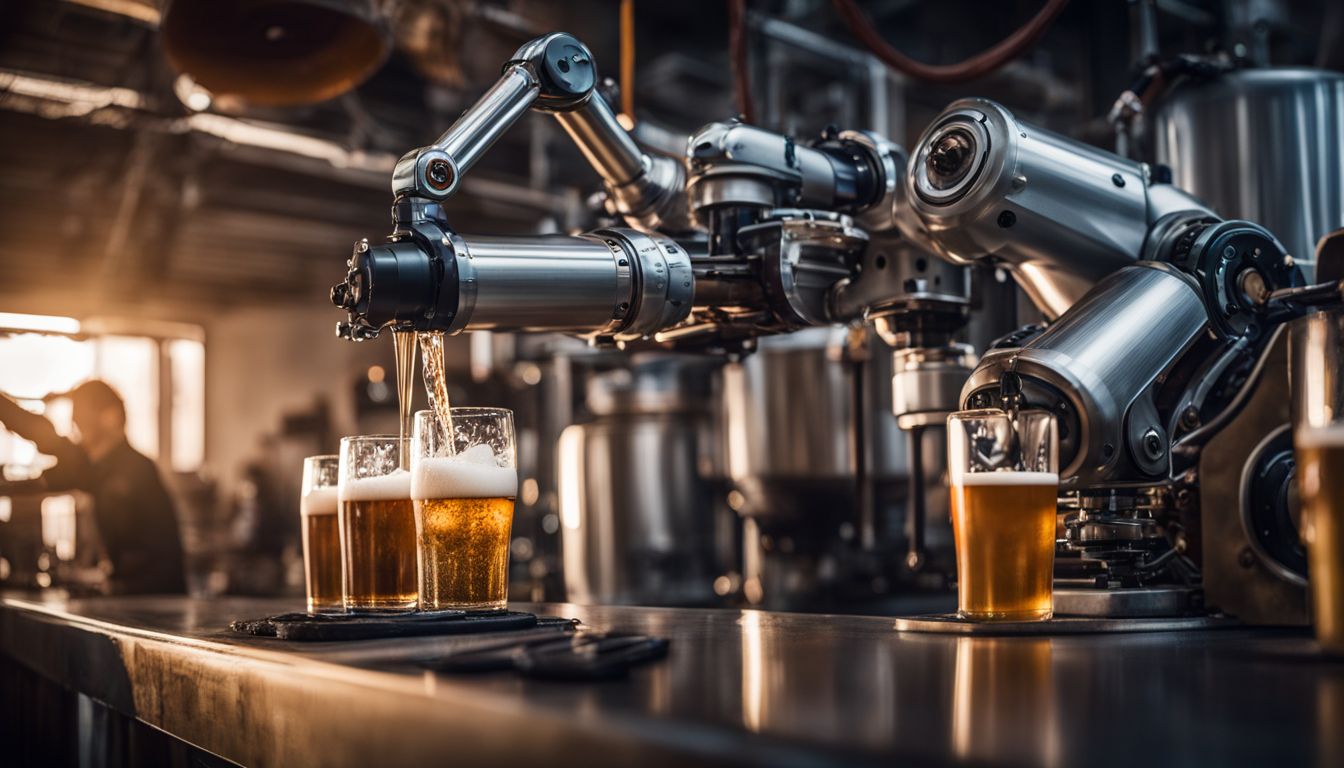
Automation and robotics have revolutionized the brewing industry, making beer production more efficient and consistent. With the use of advanced technology, breweries can automate various aspects of the brewing process, from milling grains to packaging the final product.
This automation helps reduce human error and allows brewers to focus on creativity and quality control. Robots are also being used in some breweries to handle repetitive tasks like cleaning and moving heavy kegs.
The integration of automation and robotics in brewing ensures that beer drinkers can enjoy their favorite brews with consistent taste and quality every time they raise a glass.
Advances in Ingredients and Flavoring
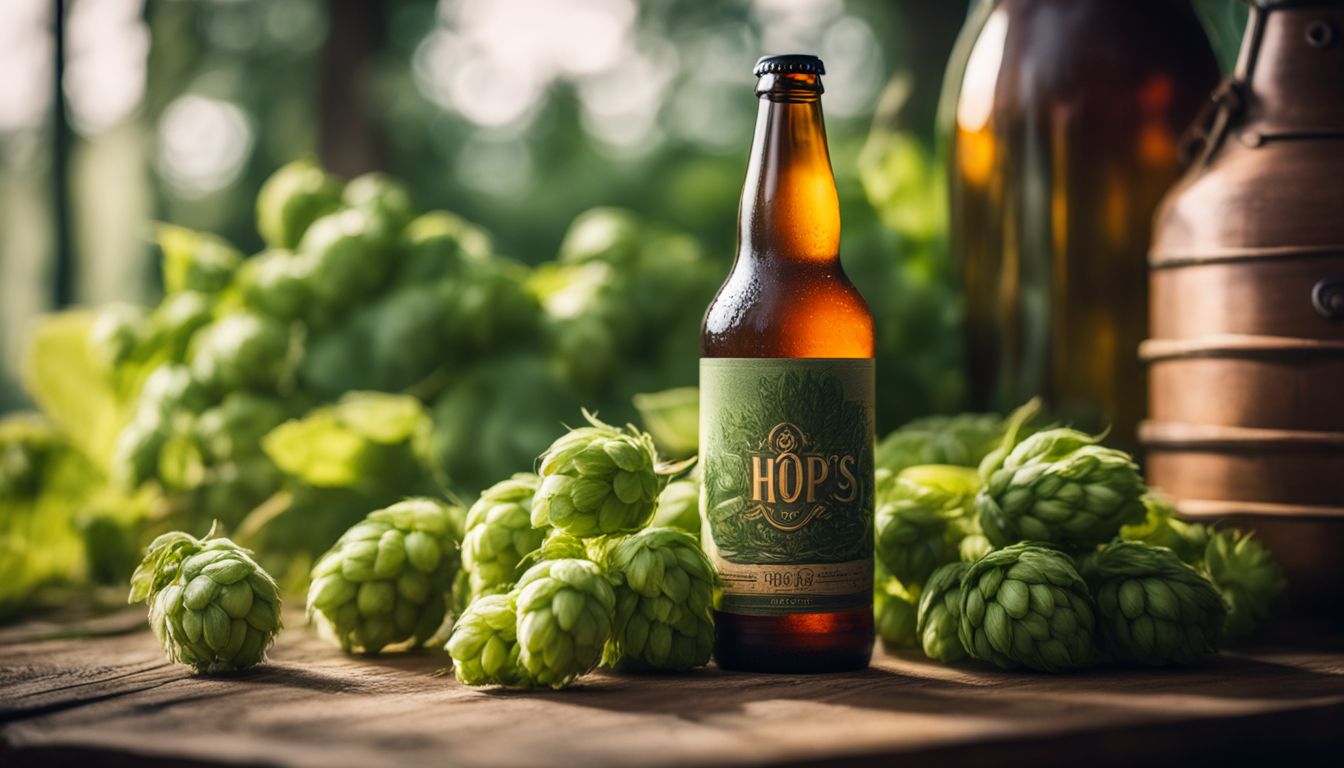
New hop science and the production of IPA have been revolutionized, with cryogenic freezing techniques being used to preserve hop flavors and aromas.
New hop science and IPA production
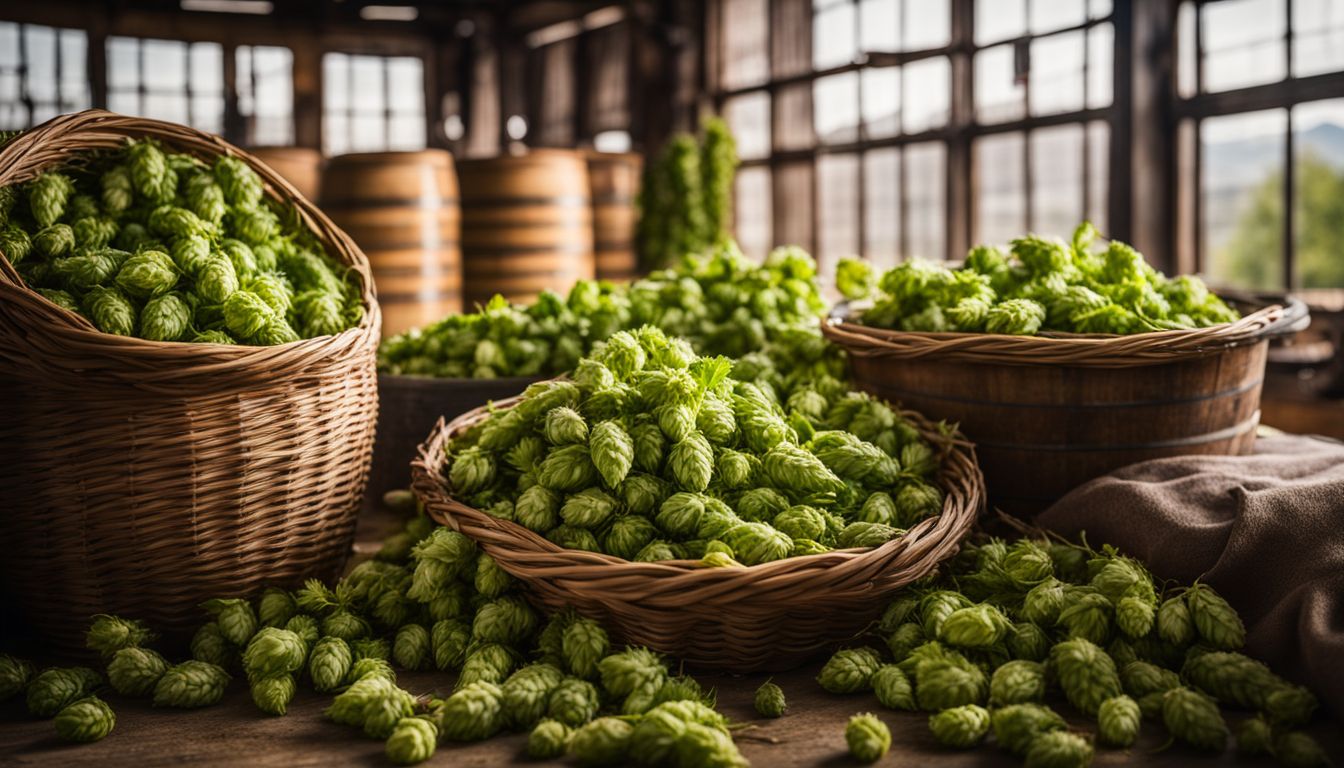
Hop science is constantly evolving and leading to exciting advancements in the world of beer brewing. Here are some key developments that beer drinkers should know about:
- Gene-editing technology: Scientists are using gene editing to develop new hop varieties with improved flavors and aromas. This allows brewers to create unique and distinctive IPAs.
- Cryogenic freezing: Cryo hops are produced by freezing the hops at extremely low temperatures, which helps preserve the hop oils and resins. This results in more intense flavors and aromas in IPAs.
- Unlocking thiols: Thiols are aromatic compounds that contribute to fruity and tropical flavors in beers. Brewers have found ways to unlock thiols during fermentation, enhancing the aroma of IPAs.
Cryogenic freezing for hops
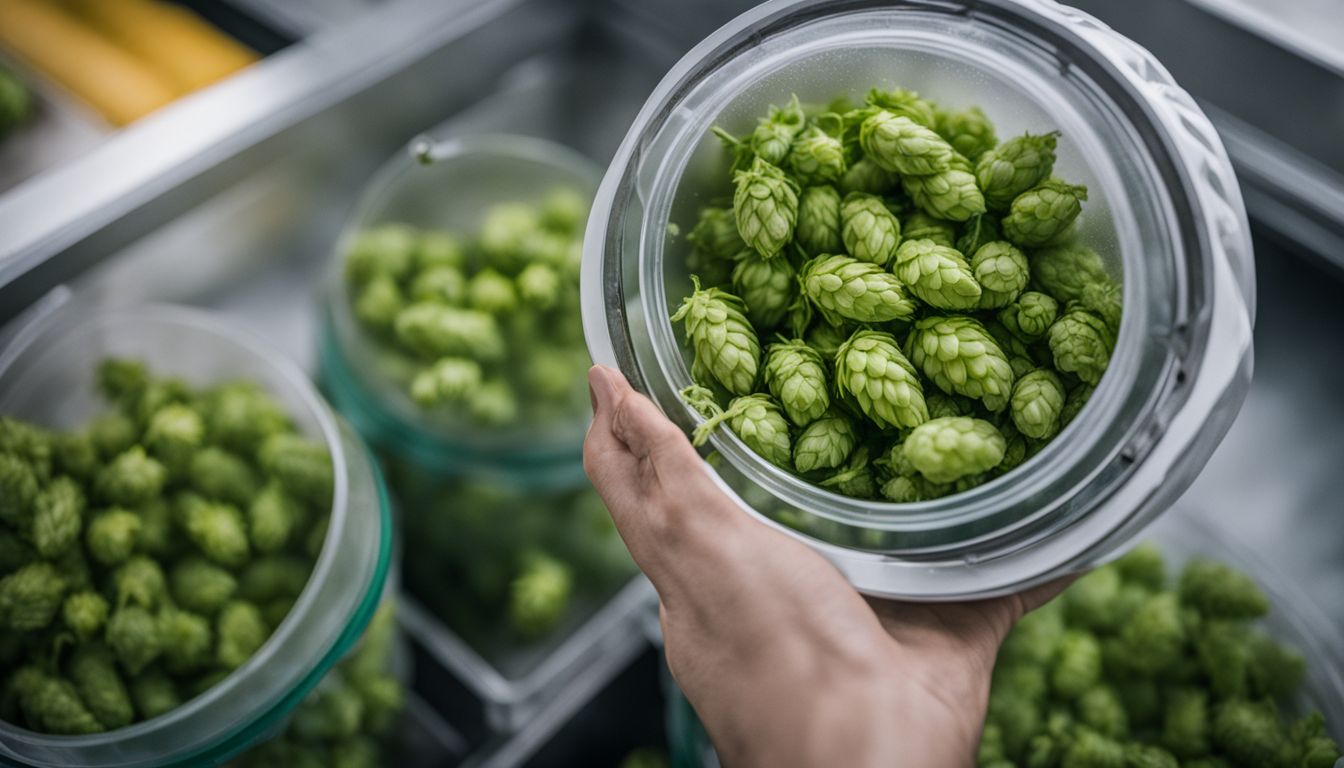 Cryogenic freezing is a new technique that helps brewers get more flavor out of their hops. Hops are an important ingredient in beer, as they give it the distinctive taste and aroma.
Cryogenic freezing is a new technique that helps brewers get more flavor out of their hops. Hops are an important ingredient in beer, as they give it the distinctive taste and aroma.
With cryogenic freezing, hops can be frozen at extremely low temperatures, which helps to preserve their flavors better than traditional methods. This means that brewers can use less hops while still getting the same great taste.
It also allows them to experiment with different hop varieties and create unique flavors for their beers. So next time you enjoy a delicious craft beer, remember that cryogenic freezing has played a role in making it extra tasty!
Unlocking thiols for aroma enhancement
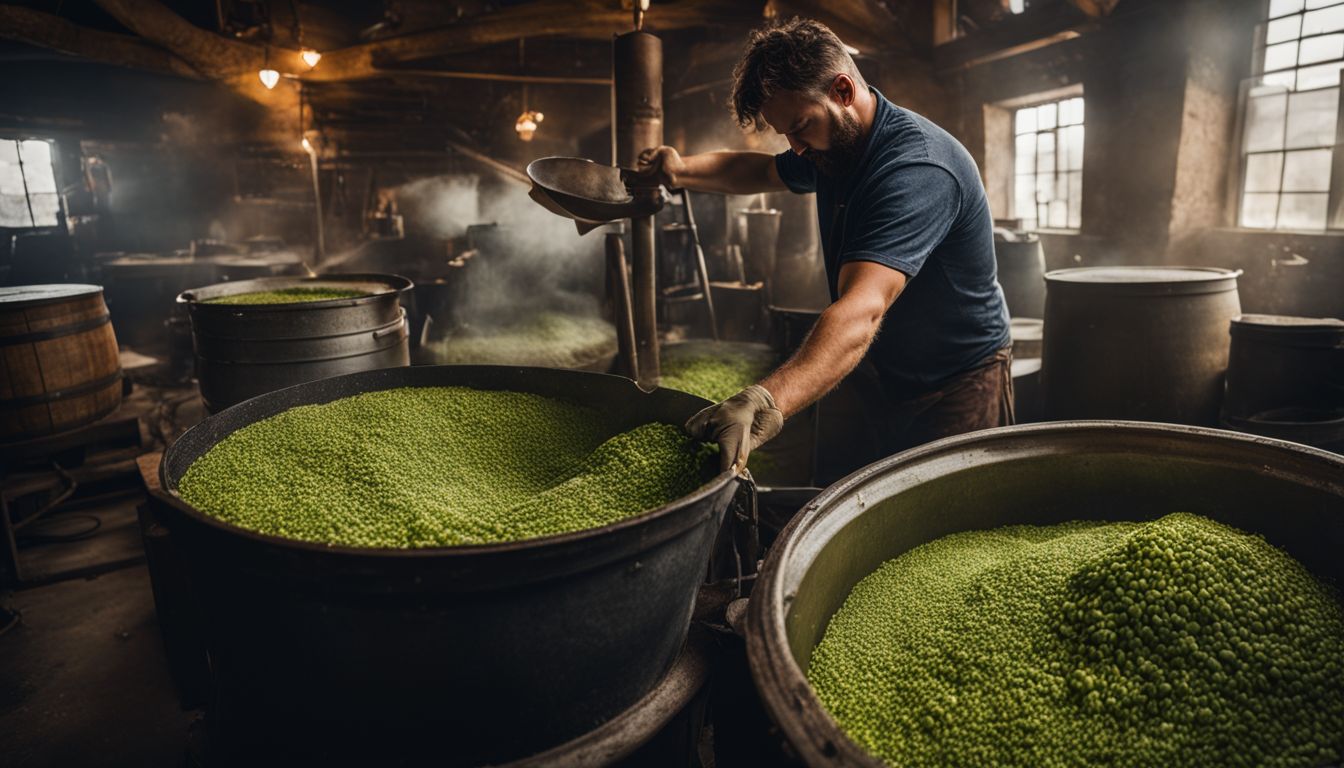
Thiols are compounds found in hops that contribute to the aroma and flavor of beer. Recently, brewers have been using new techniques to unlock the potential of these thiols for aroma enhancement.
By manipulating the brewing process and experimenting with different yeast strains, they can create beers with more intense and complex aromas. This innovation has opened up a whole new world of possibilities for craft brewers, allowing them to push the boundaries of flavor and create unique brews that appeal to beer enthusiasts.
So next time you’re sipping on your favorite IPA or pale ale, take a moment to appreciate the skill and creativity behind unlocking thiols for aroma enhancement in your glass.
Packaging and Distribution Innovations
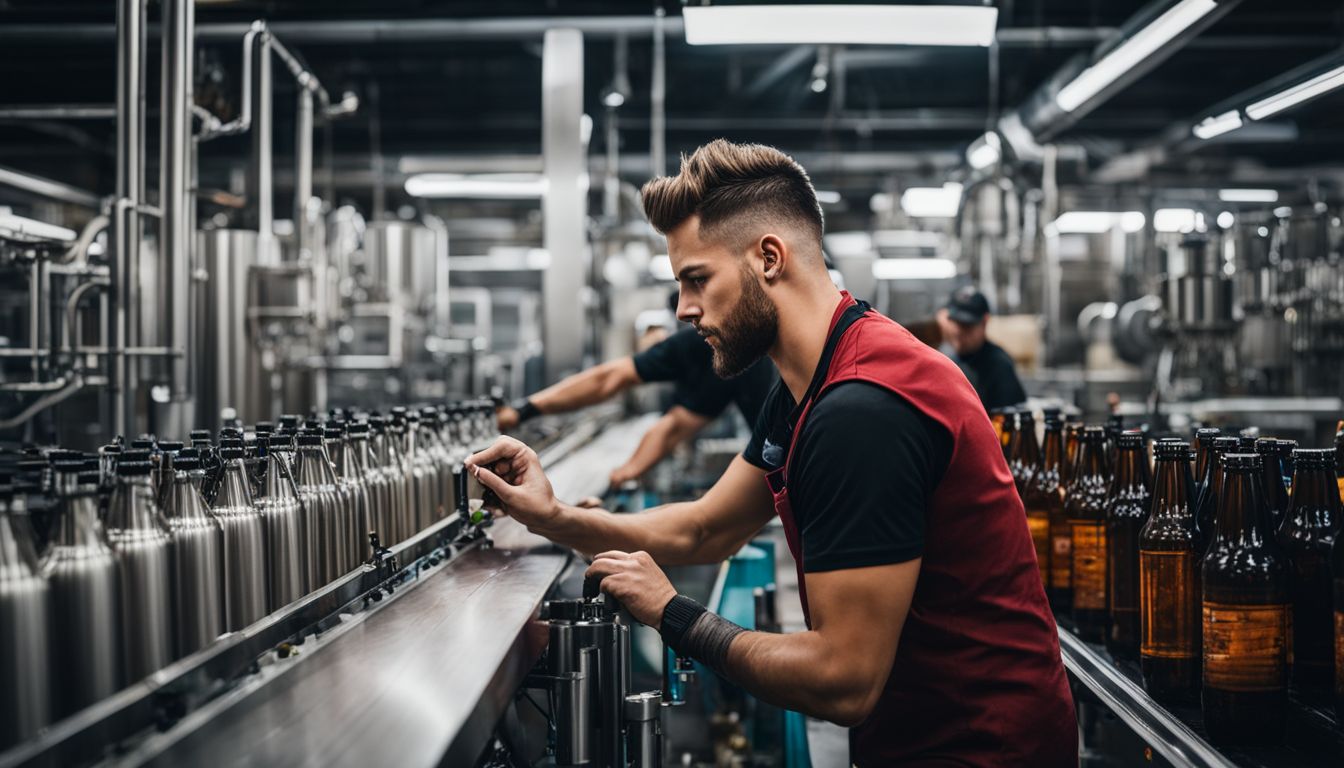
New technologies have revolutionized packaging and distribution in the beer industry, with smart packaging solutions, improved canning and bottling processes, and more efficient distribution systems.
Discover how these innovations are changing the game for craft breweries. Read More.
Smart packaging solutions

Smart packaging solutions have revolutionized the way beer is packaged and consumed. These innovative solutions aim to improve the overall quality and experience of drinking beer. Here are some examples of smart packaging solutions in the beer industry:
- Interactive Labels: Some breweries are using interactive labels on their beer bottles or cans. These labels can provide information about the beer, such as tasting notes, food pairing suggestions, and even brewery tours. With a simple scan using a smartphone, drinkers can access this additional information and enhance their enjoyment of the beer.
- Temperature Indicators: Smart packaging can also include temperature indicators that change color based on the temperature of the beer inside. This helps consumers ensure that they are serving and consuming their beer at the optimal temperature for maximum flavor.
- UV Light Protection: UV light can degrade the quality of beer over time, leading to off-flavors and spoilage. Smart packaging solutions often include UV protection to prevent this degradation and maintain the freshness of the beer for longer periods.
- Sustainability Features: Many breweries are also incorporating sustainable packaging materials into their products. This includes using recycled materials for cans or creating biodegradable packaging options that reduce environmental impact.
- Tracking Systems: Some breweries have implemented tracking systems in their packaging to provide real-time updates on delivery status or shelf life remaining on certain beers. This ensures that consumers have access to accurate information about their purchases.
- Augmented Reality (AR): AR technology is being used in smart packaging to create engaging experiences for consumers. By scanning a QR code or using an AR app, drinkers can unlock virtual content like animations or games related to the brewery or specific beers.
Improvements in canning and bottling processes
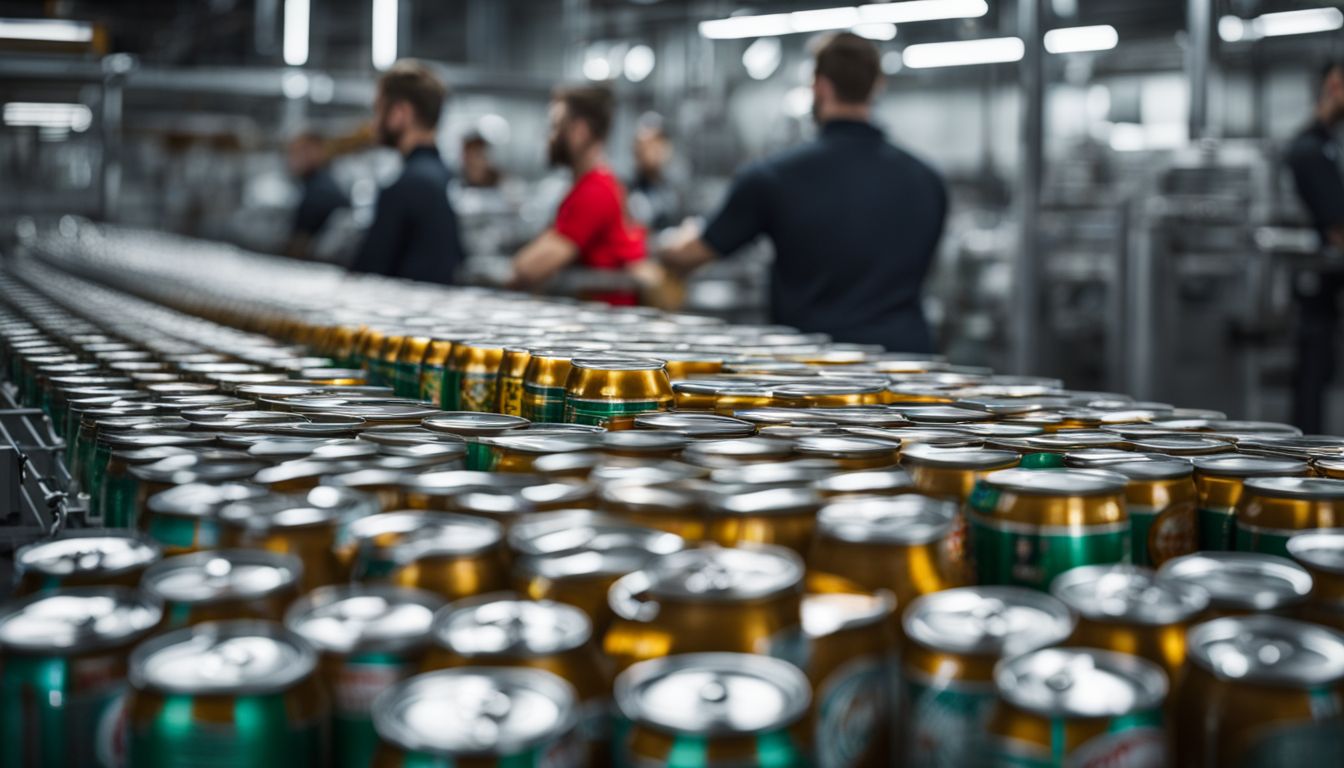
Improvements in canning and bottling processes have made it easier for breweries to package their beer. Here are some advancements that have been made:
- More efficient filling systems: New technology has made it possible for breweries to fill cans and bottles at a faster rate, increasing production efficiency.
- Enhanced quality control: Innovations in canning and bottling equipment allow brewers to monitor the quality of their products more closely. This helps ensure consistent taste and prevent contamination.
- Reduced oxygen exposure: Oxygen is the enemy of beer, as it can cause off-flavors and spoilage. Improved canning and bottling processes help minimize oxygen exposure, resulting in fresher-tasting beer.
- Environmentally-friendly packaging: Breweries are adopting sustainable packaging solutions, such as using lighter-weight materials or opting for recyclable packaging options.
- Customizable labeling options: With advancements in printing technology, breweries now have more flexibility in designing unique labels for their products. This allows them to stand out on store shelves and attract consumers.
- Better shelf life: Improved canning and bottling processes help extend the shelf life of beer, ensuring that customers can enjoy a fresh-tasting product for longer periods of time.
- Easier storage and transportation: Packaging innovations have led to designs that make it easier to stack cans or bottles, optimizing storage space in breweries and during transportation.
Efficient distribution systems
Efficient distribution systems are crucial for ensuring that your favorite craft beer reaches you in the freshest and most timely manner possible. With advancements in technology, breweries now have access to smart packaging solutions and improved canning and bottling processes that help maintain beer quality during transportation.
Additionally, breweries are adopting efficient distribution systems that use RFID tagging and GPS shipment tracking to monitor the location and temperature of beers while they are en route to their final destinations.
By implementing these technologies, breweries can minimize waste, reduce costs, and deliver a better drinking experience for beer enthusiasts like you.
In fact, these innovations in distribution systems are part of the larger trend towards incorporating Internet of Things (IoT) technology into brewing operations. Through IoT integration, breweries can gain real-time insights into inventory levels, production schedules, and demand patterns.
The Future of Beer Brewing Technology
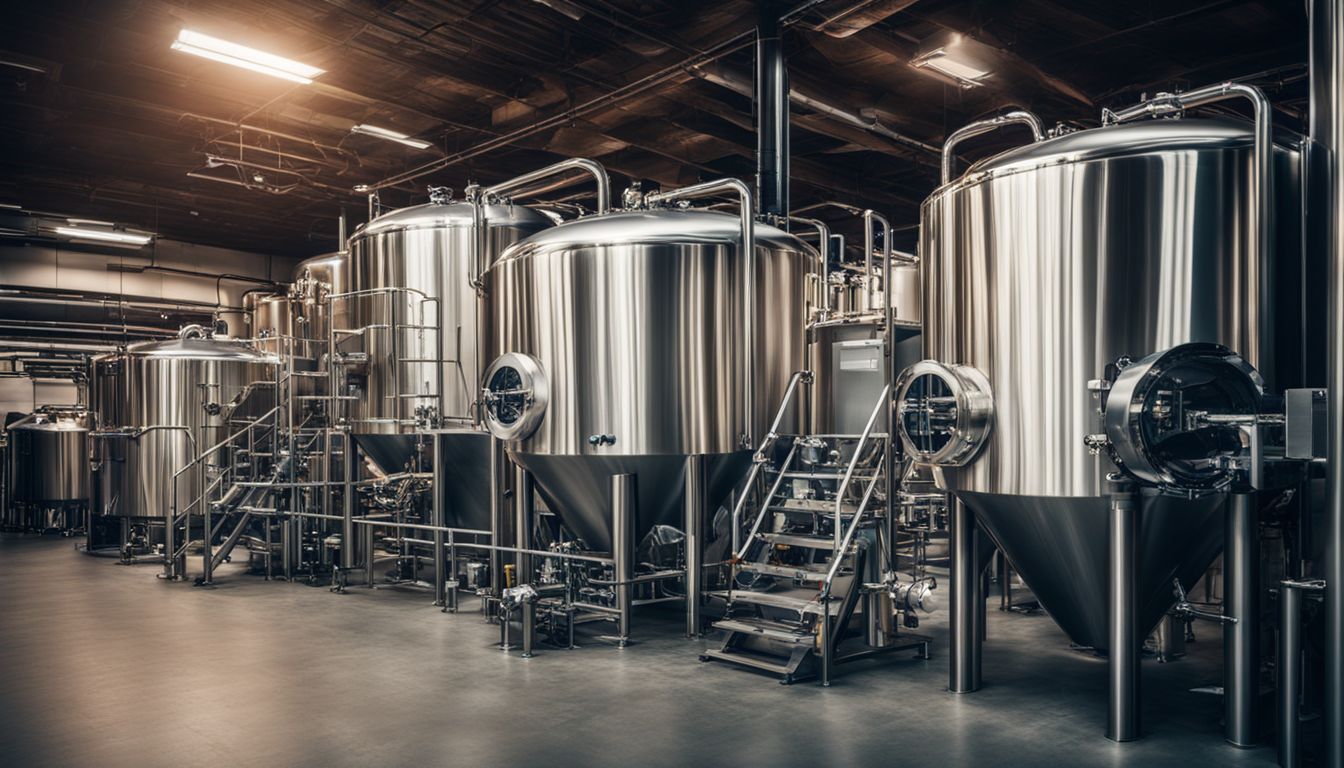
AI and IoT will revolutionize brewing operations, enabling breweries to optimize production processes and quality control while ensuring sustainability through energy-efficient practices.
AI and IoT in brewing operations
Artificial intelligence (AI) and the Internet of Things (IoT) are making their way into brewing operations, bringing advanced technology to your favorite beers. With AI systems and IoT integration, breweries can improve their efficiency, quality control, and overall brewing process.
AI-powered machines can monitor and adjust temperature, pressure, and other factors in real-time, ensuring consistent results batch after batch. IoT devices can also track data from sensors placed throughout the brewery, giving brewers valuable insights into brewing conditions and helping them make informed decisions.
These advancements in technology mean that beer drinkers like you can enjoy a more consistent and high-quality pint every time you raise your glass.
Sustainable brewing practices
Brewers are adopting sustainable practices to reduce their environmental impact. Here are some ways they’re doing it:
- Conserving water: Brewers are implementing water-saving technologies and processes to minimize water usage during brewing.
- Energy-efficient brewing: Breweries are investing in energy-efficient equipment and optimizing their operations to reduce energy consumption.
- Waste reduction: By implementing recycling programs and finding innovative uses for byproducts, breweries are minimizing waste generation.
- Sustainable sourcing: Brewers are prioritizing locally sourced ingredients and supporting sustainable agriculture practices.
- Packaging innovations: Many breweries are opting for eco-friendly packaging materials, such as cans instead of bottles, to reduce their carbon footprint.
- Community engagement: Breweries are actively engaging with their local communities through initiatives like fundraisers or partnering with environmental organizations.
Emerging trends and future possibilities
The beer brewing industry is constantly evolving, and there are several emerging trends and future possibilities on the horizon. One exciting development is the integration of artificial intelligence (AI) and the Internet of Things (IoT) in brewing operations.
This technology can help brewers monitor and control various aspects of the brewing process, leading to improved quality and efficiency. Additionally, sustainable brewing practices are gaining traction, as breweries strive to reduce their environmental impact by implementing energy-efficient processes and using climate-friendly ingredients.
Finally, advancements in packaging solutions, such as smart packaging and efficient distribution systems, are making it easier for breweries to reach consumers with their products.
Conclusion
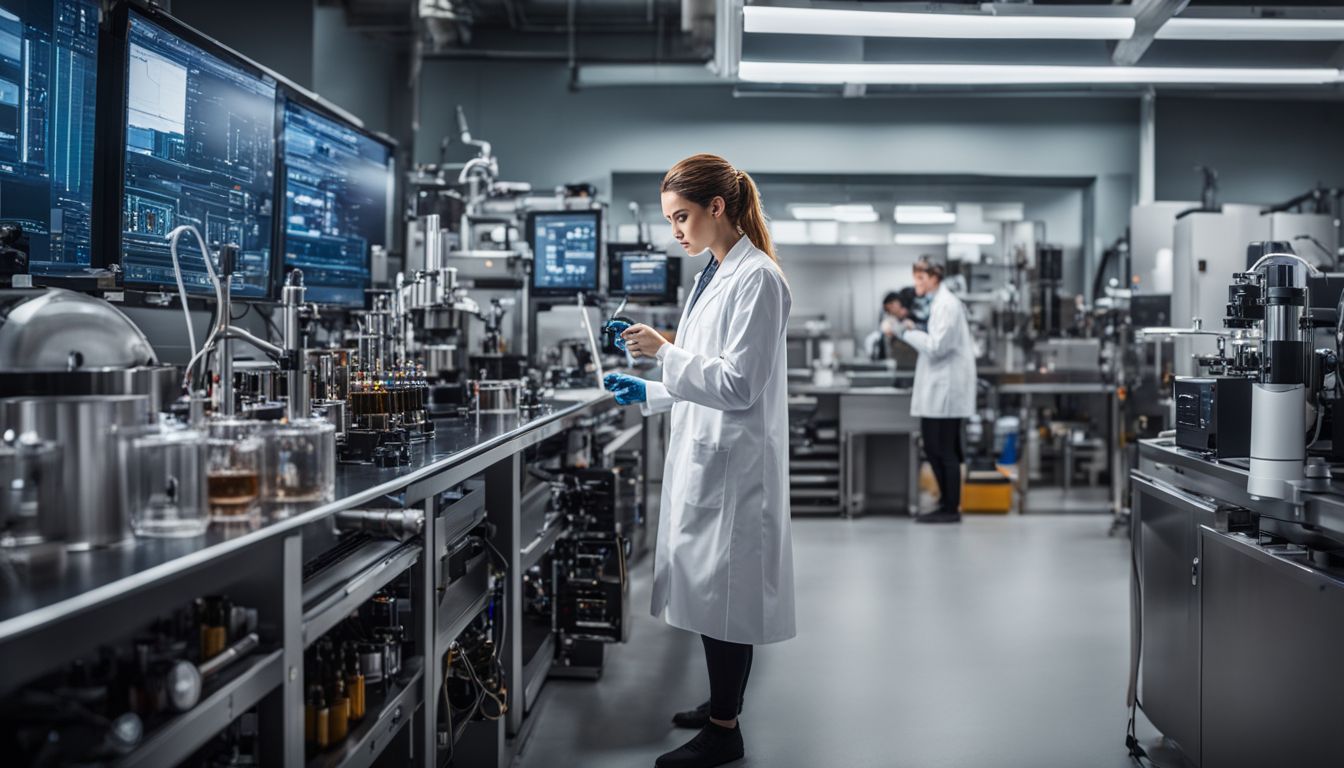
In conclusion, advancements in technology have had a significant impact on the beer brewing industry. From improvements in brewing processes and ingredients to packaging innovations and sustainable practices, technological advancements continue to shape the future of beer production.
With AI, IoT integration, and emerging trends on the horizon, there is no doubt that the beer industry will continue to evolve and thrive with these new innovations. Cheers to the exciting possibilities in beer brewing technology!
FAQs
1. What are some of the latest innovations in beer brewing?
Some of the latest innovations in beer brewing include automated brewing systems, advanced fermentation techniques, and the use of alternative ingredients such as fruit or spices.
2. How do these advancements in technology improve the beer brewing process?
These advancements improve the beer brewing process by allowing for more precise temperature control during fermentation, reducing the risk of contamination, and increasing efficiency and consistency in production.
3. Is there a difference between traditional and modern beer brewing methods?
Yes, there is a difference between traditional and modern beer brewing methods. Traditional methods often involve manual labor and longer fermentation times, while modern methods utilize technological advancements to streamline processes and achieve faster turnaround times.
4. Will these innovations change the taste of my favorite beers?
The innovations in beer brewing may have an impact on the taste of certain beers if breweries choose to experiment with new ingredients or techniques. However, many breweries strive to maintain the flavor profiles that their customers know and love.
